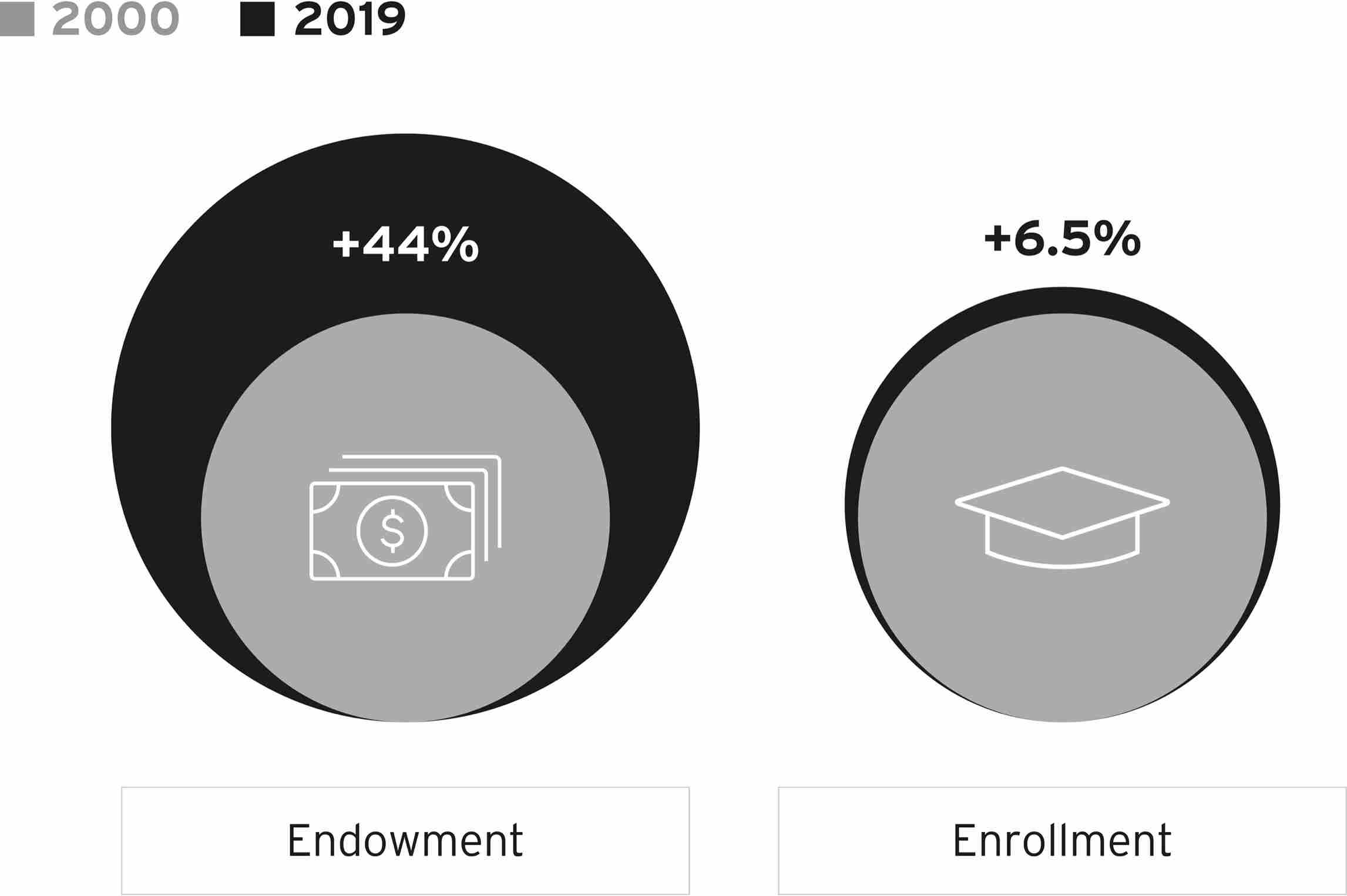Reform Higher Ed
Higher education needs incentives to drive the expansion of seats. The best incentive? Money. One proposed solution is to cancel over $1.5 trillion in student debt, but that would only reinforce higher education’s model of exploitative costs, at a huge expense to taxpayers. Instead, we should target the almost $600 billion in endowments held by U.S. colleges on a tax-free basis.
Elite colleges have become hedge funds masquerading as educators, so they should be taxed as the former. A simple requirement for maintaining tax exemption on an endowment: Colleges should expand freshman seats faster than the population is growing. That’s for the elites, with massive endowments. For the majority of schools, which educate the vast majority of students, we need a grand bargain. Public subsidies and state funding should be increased, but directly linked to the same expansion obligation.
We could also draw innovators into the space by leveling the playing field and abolishing the accreditation cartel. Accreditation is required for federal financial aid, but the agencies who do it are independent of the government, and their very existence is geared toward maintaining the current model of higher education. These bodies should be rebuilt with a broader base of stakeholders. It doesn’t matter if higher education is sticking out its chin for disruption if its competitors aren’t allowed into the ring.
98
Inflation-Adjusted Growth of Harvard Endowment vs. Undergraduate Enrollment

Source: Harvard University.